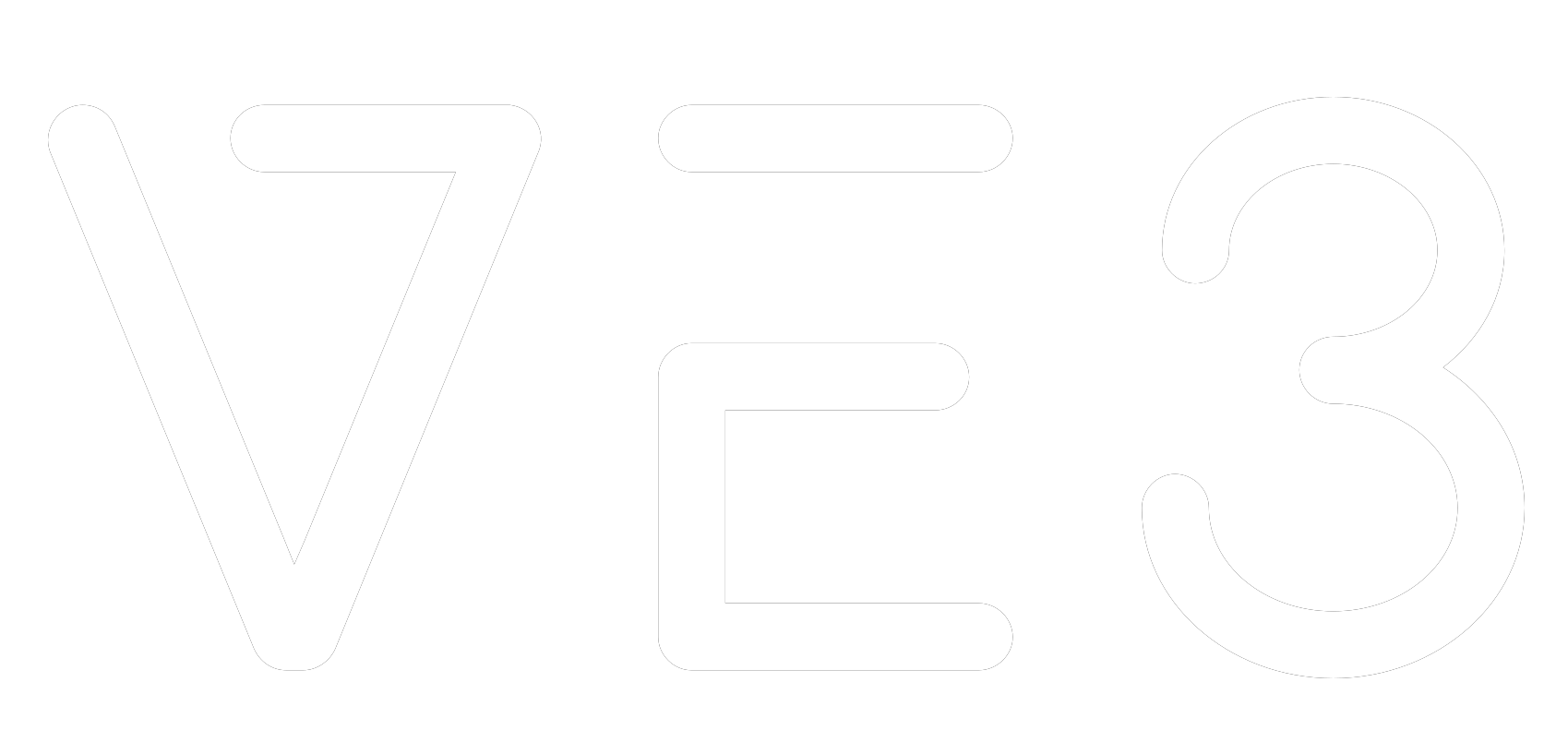Building powerful decentralized applications (DApps) on the Ethereum blockchain demands the selection of an apt JavaScript library—an integral aspect of Ethereum development. Among the plethora of choices, two names distinctly stand out due to their extensive adoption by the developer’s community—Ethers.js and Web3.js. These libraries equip developers with a robust set of tools and utilities tailored for Ethereum-blockchain interactions, thereby serving as vehicles that translate human ideas into tangible blockchain operations.
Brief Overview
Ethers.js
Ethers.js was developed as a lightweight alternative to web3.js, intended to ensure tiny file sizes and optimal load times. It has an intuitively designed API and a robust feature set that includes contract ABIs, transaction signing, wallet integrations, and more. This library comes with native TypeScript support, a feature that’s been highly appreciated by TypeScript-leaning developers. However, being a relatively newer entry into the ecosystem, it has a smaller community compared to Web3.js, which can potentially affect the readily available support and the pace of feature additions.
Web3.js
Web3.js is Ethereum’s original JavaScript library and has established itself over time as the de-facto standard for Ethereum development. Being Ethereum’s initial and official library, it sees extensive community support, which ensures that new feature additions and bug fixes are swiftly applied. It provides developers with a comprehensive set of features including support for multiple Ethereum protocols, along with comprehensive tools for contract interaction, wallet integration, decentralized app development, and more. While there’s a lot to appreciate in web3.js, it has been criticized for its inconsistency and complex documentation.
Features of Ethers.js
Characterized by its simplicity and user-friendliness, Ethers.js has become a go-to Ethereum library teeming with features. It boasts a plethora of capabilities catering to diverse development needs:
- Provider Abstraction: One of the standout features of Ethers.js is its provider abstraction. By formulating an abstraction layer over Ethereum providers, it allows developers to effortlessly switch between different networks, be it the mainnet, various testnets, or custom providers. It significantly reduces the friction that may arise while transitioning across networks, thus enhancing productivity and efficiency.
- Contract Interactions: Ethers.js simplifies the otherwise complex process of interacting with smart contracts. It provides an intuitive and clean Application Programming Interface (API) that streamlines tasks such as contract deployment, function calls, and event listening. This feature can be a real game-changer, aiding developers in navigating through the labyrinth of smart contracts with greater ease.
- Wallet Management: Besides, Ethers.js excels in wallet generation and management. It supports diverse forms of wallets including those derived from mnemonic phrases, private keys, as well as hardware wallets such as Ledger and Trezor. This multifaceted support offers developers the flexibility to choose and manage wallets according to their preferences and needs.
- Transaction Management: Lastly, Ethers.js brings sophisticated features for transaction signing and management to the table. It encompasses functionalities such as gas estimation – a vital factor in transaction management, nonce tracking – promoting transaction integrity, and lifecycle events monitoring of transactions. These features come in handy for streamline transaction processes, making Ethers.js a holistic solution for Ethereum development challenges.
const { ethers } = require('ethers');
// Connect to a local Ethereum node
const provider = new ethers.providers.JsonRpcProvider('http://localhost:8545');
// Get the balance of an Ethereum account
const getBalance = async (address) => {
const balance = await provider.getBalance(address);
console.log(`Account balance: ${ethers.utils.formatEther(balance)} ETH`);
};
// Deploy a smart contract
const deployContract = async (contractData, wallet) => {
const factory = new ethers.ContractFactory(contractData.abi, contractData.bytecode, wallet);
const contract = await factory.deploy();
console.log(`Contract deployed at address: ${contract.address}`);
};
// Usage examples
getBalance('0x1234567890abcdef');
deployContract(contractData, wallet);
Features of Web3.js
Standing as one of the most adopted Ethereum libraries, Web3.js offers developers an all-embracing suite of capabilities essential for blockchain development.
- Ethereum Compatibility: At the heart of its features is seamless integration with Ethereum’s JSON-RPC API. This integration allows developers to effortlessly interact with the blockchain, execute transactions, and invoke smart contract functions. This compatibility is what anchors Web3.js’s stronghold in the Ethereum development realm.
- Event Listening: Web3.js excels in providing utilities to listen for, and respond to, blockchain events or emissions from smart contracts. In the ever-evolving world of real-time applications and decentralized finance (DeFi) platforms, this particular attribute of Web3.js is instrumental.
- Contract Interaction: With Web3.js, developers also receive an advanced level of abstraction for smart contract methods and events. This feature significantly simplifies key tasks such as the deployment of smart contracts, initiation of function calls, and handling of various events. Essentially, it makes managing the intricate realm of smart contracts more accessible and manageable.
- Blockchain Queries: Web3.js makes mining for data on the blockchain a breeze. Developers can effortlessly query blockchain data including, but not limited to, account balances, transaction histories, and states of smart contracts. This functionality is vital for creating informative user interfaces and delivering crucial insights.
const Web3 = require('web3');
// Connect to a local Ethereum node
const web3 = new Web3('http://localhost:8545');
// Get the balance of an Ethereum account
const getBalance = async (address) => {
const balance = await web3.eth.getBalance(address);
console.log(`Account balance: ${web3.utils.fromWei(balance, 'ether')} ETH`);
};
// Deploy a smart contract
const deployContract = async (contractData, account) => {
const contract = new web3.eth.Contract(contractData.abi);
const deployTx = contract.deploy({ data: contractData.bytecode });
const gasEstimate = await deployTx.estimateGas();
const deployReceipt = await deployTx.send({
from: account,
gas: gasEstimate,
});
console.log(`Contract deployed at address: ${deployReceipt.contractAddress}`);
};
// Usage examples
getBalance('0x1234567890abcdef');
deployContract(contractData, '0xabcdef1234567890');
Ethers.js Usability
- Intuitive API Design: Ethers.js has built its reputation on providing an intuitive and consistent API. The library’s API design philosophy embraces cleanliness and straightforwardness to deliver a seamless developer experience. The methodological selection of method names, parameters, and return values makes it easier for developers to understand and interact with the Ethereum blockchain. This meticulous API design allows developers to quickly grasp the concepts underlying Ethereum operations and achieve significant productivity with minimal effort.
- Strong Typing and Documentation: Ethers.js also places a significant emphasis on TypeScript support, offering comprehensive type definitions. The library’s commitment to strong typing ensures type safety and activates autocompletion in TypeScript-enabled developers’ environments, consequently reducing errors and enhancing code quality. Its well-maintained and detailed documentation, complete with clear explanations, code examples, and guides, assists developers in navigating the library’s features effectively. This penchant for verbose documentation makes it substantially simpler for developers to understand and utilize the features offered by Ethers.js.
- Wallet and Transaction Management: The in-built utilities provided by Ethers.js for wallet generation and management refine the handling process of Ethereum accounts and transactions. Through its support for mnemonic phrases, private keys, and hardware wallets like Ledger and Trezor, Ethers.js allows developers to securely manage accounts according to their preference. Moreover, it proffers advanced transaction management features like gas estimation, nonce tracking, and transaction lifecycle event tracking, thereby further simplifying transaction-related tasks.
Web3.js Usability
- Community Support: Owing to its extensive user base and mature ecosystem, Web3.js enjoys the support of a vast and active community. This broad community support translates to an abundance of resources, well-documented guides, comprehensive tutorials, and active community forums where developers can find timely help, guidance, and solutions to common problems. This collective knowledge helps accelerate the troubleshooting process and promotes a collaborative learning environment.
- Established Standard: Web3.js has positioned itself as the de facto standard for Ethereum development with its widespread adoption. This broad acceptance has led to the creation of an array of tools, frameworks, and services designed to work seamlessly with Web3.js. This symbiotic relationship allows developers easy integration of third-party plugins, libraries, and services into their projects, hence reducing development time and effort.
- Extensive Ecosystem: The promise of usability with Web3.js is further elevated by its extensive ecosystem of plugins and integrations. Developers have access to pre-built libraries catering to specific functionalities such as decentralized finance (DeFi) and token standards (ERC-20, ERC-721), among others. These integrations not only save crucial development time but also provide standardized solutions for common use case scenarios.
Use-case Scenarios
The choice between Ethers.js and Web3.js usually comes down to the specific needs of your project. If you prioritize a clean, modern, and latency-optimized library with comprehensive features all neatly bundled in, Ethers.js would be the way to go. If, on the other hand, you appreciate the backing of a larger community and need extensive protocol support and matured integrations, Web3.js should be your pick.
Ecosystem and Adoption
Ethers.js
Although Ethers.js is a relative newcomer in the field of Ethereum libraries, it has rapidly amassed considerable traction in the recent years. Despite its ecosystem being comparably smaller than Web3.js, it holds its own with a steadily growing community and a burgeoning portfolio of successful projects that have been built using Ethers.js. The Ethers.js library undergoes active development, with its responsive maintenance team consistently enhancing features and addressing any issues that emerge. This demonstrates a proactive and engaged approach towards the community, which helps it stay agile and relevant in the dynamic world of blockchain development.
Web3.js
Web3.js, on the other hand, stands as the foundational standard for Ethereum development. It commands an already mature and extensive ecosystem. Its widespread adoption is testament to its robustness and is supported by a large, vibrant community of developers. With its comprehensive ecosystem in place, developers leveraging Web3.js have access to an extensive array of plugins, integrations, and third-party tools. This rich environment simplifies sourcing resources, libraries, and frameworks to support even the most complex application development. As a result, Web3.js further cements its position as a favoured choice among developers for Ethereum-based projects.
Alternatives for Ethereum Development
In addition to Ethers.js and Web3.js, there are several other powerful alternatives available for Ethereum development. Let’s delve into a few of these options:
- Truffle: Truffle stands as a renowned development framework for Ethereum that furnishes a broad suite of tools and utilities tailored for smart contract development. It graciously extends a development environment, a comprehensive testing framework, and an asset pipeline. These features collectively simplify the composition, deployment, and management of smart contracts. Additionally, Truffle’s compatibility with other Ethereum libraries such as Web3.js and Ethers.js acknowledges its flexible integration abilities.
- Drizzle: As a front-end library constructed atop Web3.js, Drizzle seamlessly streamlines the integration of Ethereum functionality within web applications. Its key attribute lies in its provision of a reactive data store that ensures synchronization with blockchain, thus enabling straightforward fetching and real-time display of contract data. Furthermore, Drizzle shows support for popular front-end frameworks like React and Vue.js right out of the box, thus reducing necessary configuration time for developers.
- Hardhat: Hardhat acts as a comprehensive development environment and testing framework specifically constructed for Ethereum smart contracts. It offers a vast toolset for compiling, deploying, and testing contracts and brings built-in support for highly used Ethereum libraries such as Ethers.js and Web3.js at the table. Impressively, Hardhat goes a step further to offer advanced features like scriptable deployments and customization of network configurations, which allows developers for finer control over their development setup.
- Web3.py: For developers favouring Python over JavaScript, Web3.py comes across as an ideal Python library for connecting with the Ethereum blockchain. It provides functionality similar to Web3.js, including contract interactions, transaction management, and blockchain queries. This makes Web3.py a pleasant choice for Ethereum development in a Pythonic environment.
Navigating through these alternatives requires careful consideration of your project’s specific requirements, your comfortability with the programming language, and the extent of community support and documentation at hand. Since each library or framework brings its unique strengths and focuses, choosing the apt toolset becomes paramount for steering a successful Ethereum development journey. Remember, the right tool can often make the difference between a good project and a great one.
Code Insight: Coding Examples and Use Cases with Ethers.js and Web3.js
Ethers.js
- Interacting with a Smart Contract
const { ethers } = require('ethers');
// Connect to a local Ethereum node
const provider = new ethers.providers.JsonRpcProvider('http://localhost:8545');
// Define the contract ABI and address
const contractABI = [...];
const contractAddress = '0xabcdef1234567890';
// Create a contract instance
const contract = new ethers.Contract(contractAddress, contractABI, provider);
// Call a contract method
const result = await contract.someMethod(...);
console.log(`Result: ${result}`);
// Listen to contract events
contract.on('EventName', (eventArgs) => {
console.log('Event received:', eventArgs);
})
- Signing & Sending a Transaction
const { ethers } = require('ethers');
// Connect to a local Ethereum node
const provider = new ethers.providers.JsonRpcProvider('http://localhost:8545');
// Create a wallet instance from a private key
const privateKey = '0xabcdef1234567890...';
const wallet = new ethers.Wallet(privateKey, provider);
// Specify the transaction parameters
const txParams = {
to: '0xabcdef1234567890',
value: ethers.utils.parseEther('1.0'),
gasLimit: 21000,
gasPrice: ethers.utils.parseUnits('30', 'gwei'),
nonce: await provider.getTransactionCount(wallet.address),
};
// Sign and send the transaction
const signedTx = await wallet.signTransaction(txParams);
const txResponse = await provider.sendTransaction(signedTx);
console.log(`Transaction hash: ${txResponse.hash}`);
Web3.js
- Interacting with a Smart Contract
const Web3 = require('web3');
// Connect to a local Ethereum node
const web3 = new Web3('http://localhost:8545');
// Define the contract ABI and address
const contractABI = [...];
const contractAddress = '0xabcdef1234567890';
// Create a contract instance
const contract = new web3.eth.Contract(contractABI, contractAddress);
// Call a contract method
const result = await contract.methods.someMethod(...).call();
console.log(`Result: ${result}`);
// Listen to contract events
contract.events.EventName({}, (error, event) => {
if (!error) {
console.log('Event received:', event.returnValues);
}
});
- Signing & Sending a Transaction
const Web3 = require('web3');
// Connect to a local Ethereum node
const web3 = new Web3('http://localhost:8545');
// Create a new account using the web3 library
const account = web3.eth.accounts.create();
// Specify the transaction parameters
const txParams = {
to: '0xabcdef1234567890',
value: web3.utils.toWei('1', 'ether'),
gas: 21000,
gasPrice: web3.utils.toWei('30', 'gwei'),
nonce: await web3.eth.getTransactionCount(account.address),
};
// Sign and send the transaction
const signedTx = await account.signTransaction(txParams);
const txReceipt = await web3.eth.sendSignedTransaction(signedTx.rawTransaction);
console.log(`Transaction hash: ${txReceipt.transactionHash}`);
Conclusion
In the ever-evolving domain of Ethereum development, both Ethers.js and Web3.js have emerged as powerful contenders, catering to diverse developer needs. Ethers.js, with its clean API design, TypeScript emphasis, and wallet management features, is ideal for a simplified development experience. In contrast, Web3.js, with its extensive ecosystem, community support, and integration capabilities, appeals to those seeking a comprehensive and well-supported toolbox. The choice between these two libraries should hinge on the specific requirements, preferences, and objectives of each project.
As an IT Consulting and Services Company, VE3 is committed to helping you navigate the exciting world of Ethereum development with confidence and expertise. Our proficient team of Ethers.js and Web3.js specialists can offer invaluable assistance, insights, and guidance tailored to your blockchain projects. From resolving integration issues to optimizing implementations or providing strategic advice on blockchain solutions, VE3 is prepared to support your development journey and ensure the success of your Ethereum-based endeavours.


















